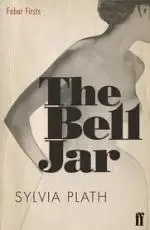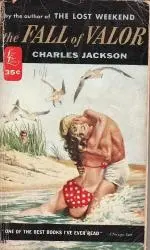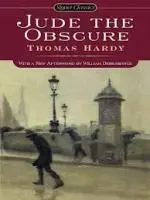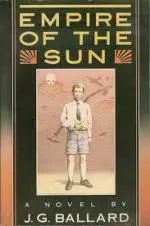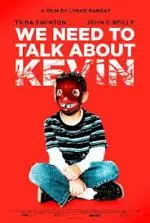Sick of the holidays yet? Drowned in enough comfort and joy to last longer than you care to live? Having daydreams of torching somebody’s jolly yard display? Cutesy elves charred to a satisfying crisp? Roasted Rudolf? Santa scorching on an open fire? If so, I’m with you. Scrooge got it right the first time.
To help you make it through this dispiriting season without resorting to arson or poison, I’ve assembled a reading list based on the idea that only one thing can cheer up the cheerless during the holidays: a depressing novel. Nothing spells Christmas like suicidal ideation. Here are five perennial holiday favorites. You think you’re bummed out now? Bah, humbug!
![]() 'The Bell Jar' by Sylvia Plath
'The Bell Jar' by Sylvia Plath
This enduring holiday classic should be dropped in the stocking of every little girl and boy as soon as the child can read. The Bell Jar is the depressive’s answer to A Charlie Brown Christmas. Both feature a despondent youth on an odyssey to find meaning in a hostile world. Charlie Brown becomes dejected by the holiday season’s commerciality; Esther Greenwood, the heroine of Plath’s semi-autobiographical masterpiece, gets depressed because that’s what life is all about. She feels trapped as though under a bell jar, a cramped and airless space out of which she can peer but in which she’s stifled and can’t breathe. Naturally, she finds herself pondering the fate of Julius and Ethel Rosenberg, soon to be electrocuted at Sing Sing. Not coincidentally, she herself receives electroshock therapy, which does about as much good for her as it did for the Rosenbergs.
Whereas Linus, Lucy, Snoopy, and Sally rally round Charlie Brown in the end and they all sing a song, Plath leaves Esther in a hearing room at the mental institution to which she has been committed. She suggests that Esther will get sprung, but the author apparently couldn’t imagine such a post-treatment happy ending with any degree of believability, so she simply abandons Esther in the nuthouse at the novel’s close. But the message is essentially the same: There’s no escaping Christmas carols, and there’s no escaping insanity. The Bell Jar is the perfect way to begin celebrating this interminable season.
![]() 'The Fall of Valor' by Charles Jackson
'The Fall of Valor' by Charles Jackson
The novelist Charles Jackson is best known for his best-selling 1944 novel The Lost Weekend, which the great Billy Wilder and his cowriter Charles Brackett turned into an Oscar-winning film. With its unsparing attitude and vivid, psychologically accurate depiction of alcoholism, Jackson’s The Lost Weekend is indeed a marvelous book. It’s depressing, but not suicidally so.
One can’t say the same about The Fall of Valor, a mirror-held-to-life portrait of a 44-year-old English professor, husband, and closet case. Set during World War II, the novel traces John Grandin’s evolution from nominal hetero to imminent homo. With excruciating psychological precision, Jackson presents Grandin’s painful self-revelation, which is spurred spectacularly but also with ambiguous nuance by the hunky Marine the Grandins meet on Nantucket. There’s something about the brilliantly named Cliff that Grandin can’t put his finger on – literally. The muscular stud has a wife, but so does Grandin. Why is the stud puppy so friendly to him? Why does he want to rub suntan lotion on Grandin’s back? Is Cliff looking up to Grandin the way a boy gazes at his older brother, or is there more romance than bromance? The conclusion of The Fall of Valor is kind of like that of Gore Vidal’s landmark novel The City and the Pillar, only in reverse. In short, it doesn’t end well.
![]() 'Jude the Obscure' by Thomas Hardy
'Jude the Obscure' by Thomas Hardy
Ah, Thomas Hardy! The Gustave Mahler of British literature! You play Mahler when you want to wallow in your own overblown misery; you read Hardy to confirm your conviction in the world’s essential gloom.
It helps to know before reading Jude the Obscure that Hardy was so wounded by the book’s critical reception that he never wrote again. His protagonist, Jude Fawley, is doomed from the get-go, as his surname suggests. He dreams of attending a great university, but he doesn’t have the proper credentials — class, money, connections — to do so. He marries a slut who proceeds to abandon him. He takes up with his cousin Sue, but they don’t marry so everyone shuns them. A couple kids pop up, including one out of nowhere: “Little Father Time,” from his marriage to the slut, though Jude doesn’t know anything about how the child came into being. “Little Father Time” is more depressed than Sylvia Plath. The boy concludes, correctly, that he and his siblings have caused the family’s ruin, so he murders them and hangs himself. Sue responds with a miscarriage and a new interest in religion. The slut returns and marries Jude. Jude dies, miserable.
Hardy sums up his bleak vision with the observation that people watch the crossroads waiting for someone to show up, something to happen, anything to break up the dreary routine. “But no one came,” Hardy writes. “Because no one ever does.” One can only ask, in the voice of Edward G. Robinson, “Where’s your Messiah now?”
![]() 'Empire of the Sun' by J. G. Ballard
'Empire of the Sun' by J. G. Ballard
The extraordinary J. G. Ballard – Chuck Palahniuk before there was Chuck Palahniuk – has a penchant for writing violent disturbed fantasies. He gave the world Crash, the brilliant 1973 novel from which David Cronenberg’s equally smart 1996 film derives, and The Atrocity Exhibition, a collection of warped stories involving (among other things) the deaths of Marilyn Monroe and JFK. (There’s a story in it with the fabulous title, “Why I Want to Fuck Ronald Reagan.”) But Empire of the Sun stands out in Ballard’s legacy because of its basis in Ballard’s own life.
As a child, Ballard lived with his parents in Shanghai; the family had the grave misfortune to be there when the Japanese post-Pearl Harbor occupation began. In the pandemonium, young Ballard became separated from his parents and had to forage for food and find shelter wherever he could. He got picked up by the Japanese Imperial Army, which was not known for its beneficence. It’s a harrowing tale made even more upsetting by virtue of its being mostly true. One can see from Ballard’s literary output the effect his lonely wandering and eventual imprisonment in a squalid Japanese prisoner-of-war camp had on his imagination. The book (like Steven Spielberg’s 1987 film, far and away my favorite of the director’s career) has a nominally happy ending: his parents find him. But Ballard is clear-eyed. There is no sentimentality. The boy is a shell of his former self, having experienced hell before he was old enough to drive. Read it now. After all, Christmas is meant for children.
![]() 'We Need to Talk about Kevin' by Lionel Shriver
'We Need to Talk about Kevin' by Lionel Shriver
Mass shootings are commonplace in the United States. We soothe ourselves with outrage every time a young man – they’re almost always male – strolls into a school armed with a deadly weapon and unleashes his generalized and inexplicable wrath on others. But the outrage is hollow. We’ve seen it so many times before that dead and bloodied schoolchildren are now as unusual as department store Santas or sales on Black Friday. (One key exception to the male gender bias is Brenda Ann Spencer, the sweet sixteen-year-old who shot up an elementary school playground in San Diego; when asked about her motive, Brenda Ann was succinct: “I don’t like Mondays.” Her response became the title and refrain of a hit song by the Boomtown Rats.)
In her superb epistolary novel We Need to Talk about Kevin, Lionel Shriver explores the now routine mass murder scenario from the point of view of an adolescent psychopath’s mother. Kevin’s mom has something going on: guilt. In a series of letters to her husband, Franklin, Eva is at turns defensive and aggressive, passionate and weary. She blames herself, but she’s quick to accuse Franklin as well, particularly the blindered, thatta-boy cheering with which Franklin encouraged Kevin as the boy grew up. Shriver cleverly reveals Kevin’s actions early on; we know he’s murdered many of his classmates fairly soon in the novel. But revelations of what we hadn’t known previously turn We Need to Talk about Kevin from fictional memoir to tense, page-turning thriller. The book’s morbid kick brings up memories of my own hometown psychopath, Jack Lee Colin, who shook Natrona Heights, Pennsylvania, to its core by shooting his father in the head and shooting and stabbing his mother, leaving her dead body under the family’s Christmas tree. ‘Twas the season. ‘Twill always be. Merry Christmas.
What are your favorite depressing Christmas reads? Let's commiserate in the comments.
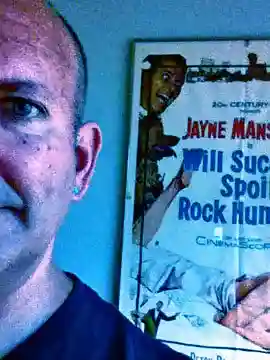
About the author
Ed Sikov is the author of 7 books about films and filmmakers, including On Sunset Boulevard:; The Life and Times of Billy Wilder; Mr. Strangelove: A Biography of Peter Sellers; and Dark Victory: The Life of Bette Davis.
